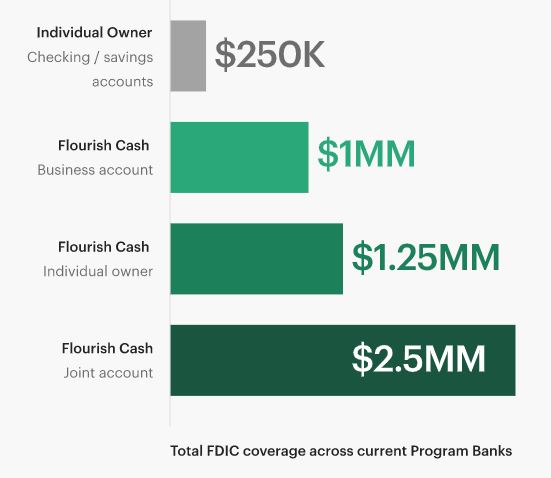By Angela Johnson, CFP®, RICP®
00:00 Hi, this is Angela Johnson with Worthen Financial Advisors, and I wanted to talk about Cybersecurity today and give you some easy steps to monitor and protect your assets because let’s face it criminals are after your banking and investment accounts.
00:19 They want money. So let’s talk about ways to protect those assets.
First, I want to start off with a little story and tell you what just happened to me.
00:31 I see this a lot in our neighborhood police report. Every week there is someone who has opened or had friends fraud with someone opening this type of account in their name and so that had me on the alert already when I saw, when I got an email and so I, what I’ve done here is just done a screenshot of
00:56 the progression of this person who tried to scam me but they did not get me, and I just want to note a couple of things.
01:04 One is it started on June 11th. I was just at home and looking at my email. And saw at night, in the evening, this first email down at the bottom.
01:16 You’ve enabled two-factor authentication and it came from Acorns. There are several, places like this that, bad actors try to mimic, so this is not anything bad about Acorns.
01:30 They are legitimate, but unfortunately bad actors use Acorns as one way to try to get your identity. So, you’ve enabled two-factor authentication.
01:42 This was on June 11th. Then I get another one immediately after. You’ve linked a new primary bank account, so I’m freaking out thinking that someone has opened an account and they have, linked my bank account to it.
01:57 Then they wanted to confirm my identification. We need to verify your identification. All this on June 11th. June, and I called immediately and got in touch.
02:09 I talked to someone. They confirmed my identity. I didn’t give them, all I had to do is give them my email address.
02:17 I didn’t have to give them anything else. And I want to back up. When I started getting these emails, I didn’t knew better than to open the email and then click on the contact us link.
02:32 So I went to acorns.com, found the customer support number, and I called that number. There were customer support numbers inside of all of these emails that did not match Acorns.
02:46 I would have been calling the scammers to confirm my identity. So there’s there’s a few steps to this or things to watch out for.
02:55 Obviously since since there’s so many things that are fake you just don’t know who to trust. But I can tell you don’t ever trust a phone number in a text or an email.
03:05 Look it up yourself. So I called Acorns. They closed the account immediately. And they confirmed with me that it was not linked to my bank account.
03:19 So I I could not figure out the scam. I even posted on Facebook asking people what is the scam with this.
03:26 They opened it with my identity, my driver’s license information, my birthday. So they definitely opened it. People used my identity, my name, but they used my email.
03:38 So knowing that I would see all of this happening. So what’s the scam? And I could not figure it out.
03:47 No one could figure it out. Then the scam hit. And I want to stress, you probably already know this, but for those of you who don’t, the new scams are not, haha we have your bank account information, we’re going to start charging you.
04:06 No, the more likely scam is they’ll sell it on the dark web so everybody has it. Or they will wait patiently until you least expect it.
04:22 And then try to get you to click again on something else. So what happened was June 11th all of this stuff started happening.
04:30 I called June 11th, my account was closed. my account, the fake account was closed. And June 19th, late at night again, I get an email that says and because it was late I didn’t realize that this says finish singing up for Acorns instead of signing up.
04:52 But I did open it and I thought, oh my gosh, it’s been like 8 days, why did they open it back up?
05:00 This person has gone back in and opened it back up and now I’m going to have to call again. And when I what they wanted me to do, this was a fake email, obviously you can tell by the misspellings and if I were to open it, you could see that the sender is not real.
05:17 but they wanted me to freak out and call and click on the link and call support or take some other action by clicking on a link inside of an unsolicited email.
05:30 So, just showing you this to highlight a few things that are going on that look super real. I did call back on the 20th when they were open and confirmed that they did not ever, Acorns did not ever send me this email.
05:47 that’s when I figured out what the scam was. Is to wait over a week, have you comfortable that everything is completed and done, and then send you a phishing email where they’re trying to get your data.
05:58 so wanted to tell you that. That is the I’m always big on cyber security, but this was recent and just wanted to share that as what got me thinking about doing a video like this.
06:14 Then, as I was getting all this content together. I got an email on July 22nd that I thought I would share and since it’s an unknown sender, my Outlook didn’t download pictures and I don’t want to click to download pictures, but I got an email that said, said it’s got this dollar amount.
06:34 Thank you for choosing Uber. On July 20th, you rode with Mauricio two and a half miles. It took six minutes in an UberX and I most certainly did not.
06:46 And I, Again, if I would have clicked anything in here, they could have, it could have set off malware, all kinds of things.
06:54 So, I just have now like deleted it, blocked sender, and it’s not gone. The email’s gone, but just please, it’s so easy to click on a link in an email because we just trust it.
07:10 I didn’t take a ride in Uber. At the bottom of this email is, If you don’t think this is you, please contact customer support and it’s a link.
07:21 Oh yeah, okay. If I click on that, then they’re gonna have who knows what they will set off in my computer.
07:27 So, those are just two examples of things that have happened to me very recently. I’m sure you have your own stories, but I just want to remind you, do not click on any unsolicited links in text or email and text is a big thing right now too.
CREATE BARRIERS
07:44 Alright there are three steps that we’re going to go through. The first one is create barriers. So, we want to make it so that it’s hard to get our information.
07:56 The first thing to remember is no one will and call you and ask for your information. Who is legitimate? No bank, the IRS, your investment custodian.
08:10 No one will ever call, text, or email and ask you to click a link. Or tell them verbally information about yourself.
08:20 Don’t do it. If someone calls you and says they’re from your bank, or they’re from Schwab, or they’re from, you know, some custodian, they’re from Flourish, hang up and you call in to a number that you know to be the right number.
08:37 That’s number one. Number two, use a password manager. Like LastPass or 1Password because they can set, and you can do this too, but they can set complex passwords.
08:52 That’s kind of step two and three. We all have so many passwords now and there’s just no way around it.
09:00 You should not reuse passwords. You should not use old passwords. And so, the only thing that really can keep it all straight, and you shouldn’t write them down.
09:11 The only thing that can keep them all straight a password manager. Two that I know of are LastPass and 1Password.
09:21 I love their complex passwords that they generate for you, and they make it easy to use. They will also tell you, those password managers, you can run a report and see what passwords are old, what passwords are duplicated, which passwords are compromised and have been, they are leaked on the dark web
09:43 . So you know, okay, I need to change anything with that password. That password is now on the dark web. It is not safe.
09:50 Change it immediately. then number 5 on this list, but this is very, very, very very important, is secure your email account.
10:02 All of your email accounts should have 2-factor authentication, multi-factor authentication, and a complex password. So not you know, 1-2-3-4. Not anything that you’ve ever used in the past.
10:14 the reason for that is, bad actors want to get into your email so that they can set up accounts and access your account and use your, They need your email as a way to verify your identity.
10:29 because if you’ve turned on multi-factor authentication on your bank and it’s going to send you an email to confirm, they need to be in your email.
10:37 So since they’re securing your email is like big barrier. So please turn on multi-factor authentication on every email account that you have.
10:48 Next up is doing the same thing, two-factor authentication and a complex password for any bank, financial, or investment account because that’s where your money is.
11:00 And that’s what they want. So turn on two-factor authentication for that as well. I think I’ve covered number seven.
11:10 Be cautious of all phishing, smishing, scams. Never click on links or respond. Don’t even respond to unsolicited transactions. Texts or emails.
11:22 And then lastly for a barrier is to protect your mobile device. So if you don’t have a passcode lock on your smartphone, your laptop, your iPad, please set up a passcode so that if you drop it, if you lose it, if it’s stolen, they can’t easily get into it.
11:41 At least buy yourself some time to go into a different program to disable that device. so that is it for that.
11:48 We’re creating barriers. Next up is monitoring. Barriers are great, but we have to be right 100% of the time and bad guys only have to be right one time.
MONITOR YOUR INFORMATION
12:00 It’s important to also monitor your barriers. I found this very easy to do. Step one, which is turn on title notification.
12:12 For me, I live in Galveston County and I just went to the local appraisal district and set up notification. So that if anyone is trying to transfer my home title out of my name and into their name, that happens.
12:28 That’s a thing now. I will get a notification and be able to stop it. So I didn’t pay for, at this point, a title lock service, but I turned on the notification and there are instructions on what names and what versions of names of your name and things that you need to enter.
12:48 I have done this for home and business. So, if you own other property, make sure it’s not, you don’t just do your primary residence, but also any other property that you own.
13:00 Next up is lock your cell phone sim with your mobile carrier. Just like your email, they, the bad guys want to get access to your mobile phone because you might have multi-factor authentication set to text you.
13:15 So, they can easily kind of bypass your phone and get your text on their phone by taking over your sim card.
13:24 It’s very easy to lock your cell phone sim. I was able to do it online with my carrier and if you can’t figure it out, call your mobile carrier and ask them to do it for you or tell you how to do it.
13:39 for all mobile devices. Step three, freeze your credit with all three bureaus. Experian, Equifax, and TransUnion. This is again is free.
13:51 There are services that you can pay for that are monitoring or locking. I don’t think that that’s necessary, but feel free to do it if you want to, but freeze your credit so that anyone trying to open credit is not able to do so.
14:08 Now that’s going to require you, if you’re trying to open some sort of credit or need you know somebody needs to run your credit for some purpose, you’ll have to unfreeze it and then freeze it back or set a time like okay, unfreeze it for 24 hours, but very important.
14:26 When you do this, you might find that you start getting mail or text messages or emails that you weren’t expecting that, hey we tried to run your credit and we couldn’t.
14:38 yeah, because that’s a scammer and I wasn’t trying to open credit. So, be sure you do that. And then, monitoring the email.
14:45 Would be checking your credit report with all three bureaus at least annually and it’s that again is free. So just check your credit for an activity that you don’t recognize.
14:58 So you can jump on it. Lastly, install antivirus and malware software on all of your devices. So if you do actually click on a link accidentally, then you can check, monitor, find and remove any kind of malware, take appropriate action.
PROTECT
15:18 And lastly, I’m sure you’re hearing a lot about this. I’m hearing a lot about this. And that is someone calling, acting like your child or your grandchild or a niece or a nephew and saying that they’ve been kidnapped or they need money.
15:36 and they sound very believable. In the past they would do it, it seems like late at night and target older people who you know just might or someone who just might panic and send the money.
15:50 now with AI they’re able to take snippets of your voice and make a whole conversation. So it literally sounds like you’re child is calling.
16:05 Your grandchild is on the phone. It is their voice. so it can be very confusing and alarming. I would definitely recommend that you call that person from a different phone perhaps, but also establish a family code word in case someone calls saying that this is your grandchild’s voice.
16:29 and they’ve been kidnapped, or your child, or your spouse. So, okay, fine, you’re kidnapped. What’s the code word? My family did this when I was in elementary school.
16:42 About the time I was in maybe fourth or fifth grade is like when missing children were put on the back of milk cartons and it just seemed like kidnappings either became, I don’t, since I was young, I’m not sure if it became more prevalent.
16:56 or there was just more attention paid to it, but we had a family code word that we established in that time and that is still our family code word, you know, 40 years later.
17:08 So have that code word and okay, if you’re really, if you’ve really been kidnapped and this is really you, what is the word?
17:17 Do not send money. It is most 99% likely to be a scam.
This next one I really have struggled with because I’m so anti-credit, but I’ve had my debit card compromised so many times.
17:36 so sick of and I’m sure the bank is sick of me having to cancel debit cards and reissue and then I have to set up auto pay on all these other, you know, all of these places for home or business or both.
17:49 that. that I’m recommending that you consider using credit cards instead of debit cards. for auto pay, the recurring transactions, that kind of thing.
18:00 maybe even if you’re out and about because, and this is credit cards that you pay in full. This is not Angela said to go buy stuff on credit.
18:12 No, this is using a credit card instead of a debit card for safety reasons and you pay it in full.
18:19 accruing zero interest. because if someone has your debit card, they have access to your whole bank account and you might have overdraft protection and so they’ve got your whole savings account too.
18:31 so, and you’ve got to get that money back. Whereas with a credit card, you can dispute it and not pay it until it’s taken care of.
18:41 So, your actual resources that you will need to live your life, are not touched. so credit cards, oh I begrudgingly am really recommending that.
18:56 I, I had to start doing that because, because I just got so sick of my debit card being compromised and my bank account being compromised and then having to wait to get the money back.
19:07 So if you do not feel that you’re responsible enough to pay, off the balance every single month, don’t do it.
19:16 Don’t use credit cards. Maybe keep a small bank account that you use that’s connected to your debit card. And maybe you have a separate bank and transfer money.
19:27 Some sort of other safety precaution. Because I don’t want you incurring debt at all to use this method. But, Credit cards instead of debit cards to protect your bank accounts would be tip number two under the protect step.
19:49 Then establish an IRS PIN. This is easily done at irs.gov. You can establish a PIN so that no one can claim your tax return.
19:59 You get a PIN, you pay you enter that either when you’re doing your own taxes or you give it to your CPA or tax preparer so that they can file your taxes.
20:10 Without that PIN, no one can file taxes for in your name once you have it established. So highly recommend that and then along those same lines claim your ssa.gov account.
20:23 That’s your social security account again so that no one can claim your social security benefits who is not you. Claiming your account, setting up multi-factor authentication prevents someone from claiming your social security account.
20:40 I hope these tips have been useful, let me know, I’d love to hear if you have others that I should add and I appreciate you watching, thanks!








